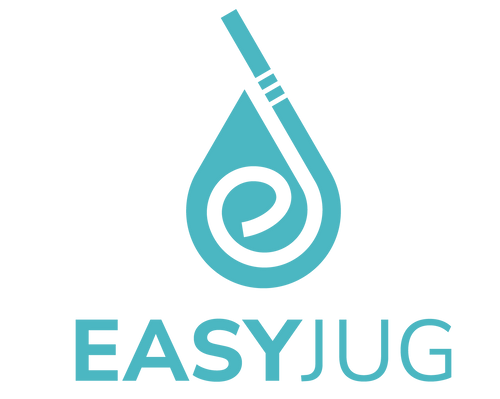The postpartum period can be a beautiful and transformative time in your life, but it's also completely normal to experience a range of emotions and challenges. While "baby blues" are common among new moms, it's essential to recognize when these feelings may escalate into something more serious, like postpartum anxiety. In this blog post, we'll help you understand the symptoms of postpartum anxiety, risk factors, and provide resources for help.
Understanding Postpartum Anxiety
Postpartum anxiety is one of the mental health conditions that can affect new mothers during the perinatal period. It often gets overshadowed by discussions of postpartum depression, but it's crucial to recognize that anxiety disorders are just as prevalent, impacting a significant percentage of new parents.
The Numbers
Statistics indicate that nearly 15% of pregnant women and new moms experience symptoms of postpartum anxiety. However, it's important to remember that postpartum anxiety can affect anyone, regardless of their history of anxiety or family history of depression.

Symptoms of Postpartum Anxiety
Postpartum anxiety can manifest in a broad range of anxiety symptoms. Some common signs include:
- Constant Worry: Excessive worry about your baby's well-being or your ability to care for them.
- Panic Attacks: Sudden, intense fear or discomfort, often accompanied by physical symptoms like chest pains.
- Intrusive Thoughts: Disturbing and unwanted thoughts about harm coming to your baby, even if you have no intention of acting on them.
- Physical Symptoms of Anxiety: This may include muscle tension, restlessness, and sleep deprivation due to racing thoughts.
- Avoidance of Activities: Avoiding situations or places that trigger anxiety.
- Negative Thoughts: Persistent and negative thoughts about being a "bad parent."
- Social Anxiety: Difficulty with social interactions, even with close family members and friends.
Risk Factors
Several factors may increase your risk of experiencing postpartum anxiety:
- History of Anxiety: If you've had anxiety issues before, you may be more susceptible.
- Family History: A family history of depression or other mental health issues can be a risk factor.
- Hormonal Changes: The hormonal fluctuations that occur during and after pregnancy can contribute.
- Sleep Deprivation: The demands of caring for a new baby can lead to severe anxiety.
- Medical Conditions: Certain medical conditions can increase the risk.
Taking the First Step: Postpartum Anxiety Quiz
If you suspect you may be experiencing postpartum anxiety, taking a screening quiz can be the first step toward getting help. Two widely recognized screening tools are the "Edinburgh Postnatal Depression Scale" and the "Perinatal Anxiety Screening Scale." These questionnaires are designed to help you assess your symptoms and identify if you need further support.
Remember, it's always a good idea to discuss any concerns about your mental health with a healthcare provider. They can provide valuable insights and recommend appropriate next steps.
The Interplay Between Postpartum Anxiety and Postpartum Depression
While postpartum anxiety and postpartum depression are distinct mental health conditions, they often coexist and share common characteristics. It's important to recognize the connection between these two conditions, as they can affect new mothers simultaneously, making the postpartum period even more challenging.
Understanding Postpartum Depression
Postpartum depression is a mood disorder that affects new moms and typically manifests as persistent feelings of sadness, hopelessness, and a loss of interest or pleasure in activities. It's more than just the "baby blues," which are common during the first few weeks postpartum and tend to resolve on their own. Postpartum depression can occur anytime within the first year after childbirth.

The Link Between Postpartum Anxiety and Postpartum Depression
-
Shared Symptoms: Both postpartum anxiety and postpartum depression can share symptoms such as excessive worry, irritability, sleep disturbances, and mood swings. This overlap can sometimes make it challenging to differentiate between the two conditions.
-
Heightened Stress: Postpartum anxiety can increase stress levels, which, in turn, can contribute to the development or exacerbation of postpartum depression. The constant worry and intrusive thoughts associated with anxiety can be emotionally draining.
-
Risk Factors: Some risk factors, such as a history of anxiety or depression, can increase the likelihood of experiencing both conditions simultaneously.
-
Complex Interaction: The relationship between these conditions is complex and varies from person to person. While some individuals may primarily experience one condition, others may have a combination of both.
Seeking Help and Support
If you suspect you're experiencing symptoms of either postpartum anxiety or postpartum depression, it's crucial to seek help from a healthcare provider or mental health professional. Early intervention and treatment can make a significant difference in your recovery.
Treatment Options
Both postpartum anxiety and postpartum depression are treatable conditions. Treatment options may include:
- Therapy: Cognitive-behavioral therapy (CBT) is often recommended, as it can help individuals develop coping strategies and address negative thought patterns.
- Medication: In some cases, medication, such as selective serotonin reuptake inhibitors (SSRIs), may be prescribed under the guidance of a healthcare provider.
- Support Groups: Joining a support group can provide emotional support and a sense of community with other mothers who may be experiencing similar challenges.
Dehydration and Its Impact on Mental Health
Staying well-hydrated is vital for overall health, and it can also significantly impact your mental well-being, especially when it comes to managing anxiety. Dehydration can exacerbate symptoms of anxiety and make you feel even more overwhelmed during the postpartum period.
How Dehydration Affects Anxiety
-
Increased Stress Levels: Dehydration can trigger your body's stress response, leading to elevated cortisol levels. This can make you feel more on edge and anxious.
-
Cognitive Impairment: Dehydration can impair cognitive function, making it challenging to concentrate and think clearly. This can contribute to anxiety and intrusive thoughts.
-
Mood Swings: Dehydration can lead to mood swings and irritability, making it harder to manage your emotions.
-
Physical Symptoms: Dehydration can also cause physical symptoms like headaches and dizziness, which can be mistaken for symptoms of anxiety or panic attacks.
During the postpartum period, when your body is recovering from childbirth, breastfeeding, and sleep deprivation, it's essential to prioritize your hydration to support your mental health.
EasyJug: Your Hydration Companion
As a new mom, staying hydrated can be a real challenge. With all the demands of caring for your new baby and adjusting to your new routine, it's easy to forget to drink enough water. That's where EasyJug comes in to make your life easier and help take the worry and fuss away from staying hydrated.
The EasyJug Advantage
-
Hands-Free Convenience: EasyJug is designed with the needs of new moms in mind. Its hands-free design allows you to stay hydrated without having to set your baby down or juggle a water bottle.
-
Stay Hydrated Throughout the Day: EasyJug's large capacity ensures you have an ample supply of water on hand, reducing the need to constantly refill your glass or bottle.
-
Reminder to Drink: Sometimes, new moms are so focused on taking care of their baby that they forget to take care of themselves. EasyJug's built-in reminder system gently prompts you to sip water regularly, ensuring you stay well-hydrated.
-
Practical for Daily Activities: Whether you're feeding your baby, doing household chores, or going for a walk, EasyJug keeps you hydrated while allowing you to focus on what matters most.
By incorporating EasyJug into your daily routine, you can make sure that staying hydrated becomes one less thing to worry about. It's a small investment in your well-being that can have a big impact on your mental health during the postpartum period.
Additional Information and Resources
For comprehensive reviews and additional information on postpartum mood disorders and perinatal mental health, you can refer to organizations like Postpartum Support International and the American College of Obstetricians and Gynecologists.
Remember, You're Not Alone
The journey into motherhood can be overwhelming, and it's entirely normal to experience a range of emotions. Recognizing and addressing postpartum anxiety and depression is not a sign of weakness but rather a courageous step toward taking care of your mental health and, by extension, your baby's well-being.

Getting Help and Support
If you find that your anxiety symptoms are interfering with your daily activities and well-being, don't hesitate to seek help. Effective treatments for postpartum anxiety include cognitive-behavioral therapy, support groups, and in some cases, medication such as selective serotonin reuptake inhibitors (SSRIs).
Resources are available, and you don't have to go through this journey alone. Reach out to your healthcare provider, or consider seeking emotional support from friends, family, or a therapist specializing in perinatal mental health.
If you or someone you know is in crisis, don't hesitate to contact the National Suicide Prevention Lifeline. They provide essential support and resources for those struggling with mental health issues.
Remember, taking care of your mental health is one of the best things you can do for yourself and your new baby. You are not alone in this journey, and help is always available. Embrace the support and resources around you as you navigate the challenges of new motherhood. Your well-being matters, and seeking help is a sign of strength, not weakness.
Community & Support
We know the beautiful chaos of motherhood – the endless feedings, diaper changes, and sleepless nights. Amidst all this love and care, it's easy to forget about your own well-being. That's where EasyJug steps in – to make hydration a breeze for you.
Join our community of nurturing mothers and prioritize your health with EasyJug. Sign up now to receive exclusive tips on staying hydrated during your breastfeeding journey, along with special offers just for you.
Because when you take care of yourself, you can give your little one the best version of you. Let's hydrate together and thrive as moms!





